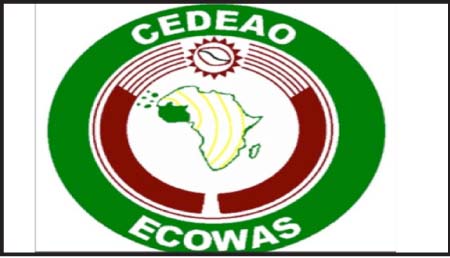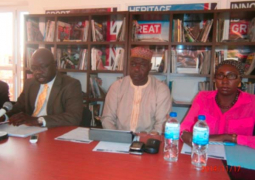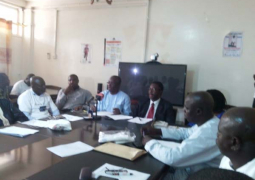
A-two-day
ECOWAS Regional media training on Disaster Risk Reduction and Management
organised by the ECOWAS Commission for 25 participants from English speaking
member countries yesterday, Wednesday concluded in Accra, Ghana.
The
objectives of the training workshop was to further train media organsations
about Disaster Risk Reduction and Management issues and how to report
appropriately on hazards and their impact on social development; how to play
key roles in creating awareness and disseminating information about Disaster
Risk and Vulnerability of the people and livelihoods; to use media to raise
community and national awareness about disasters, promote the use of knowledge
and build the culture of safety and resilience in the region; and to enhance
various advanced communication means for giving early warning, evacuation plans
and help post-disaster activities.
Speaking
at the opening ceremony, Mohammed Ibrahim, head of ECOWAS Humanitarian and DRR
Division, said Africa is acknowledged to be the most vulnerable continent to
natural hazards and to climate change with negative impacts on the economic and
social development of the entire continent.
“In
West Africa, the extent of vulnerability and risk exposure and losses from
disasters are expected to continue to increase over the next decades,” he added
saying: “Floods and drought remain the most serious disasters in West Africa.”
He
noted that a lot of efforts are being made by various stakeholders including
governments, non-governmental organisations, regional organisations as well as
the United Nations to address global disaster risk reduction concerns.
He highlighted that response to disasters
alone is not sufficient to meet the increasing demand caused by hazard impacts
on large populations and therefore important to share knowledge that can help
with identifying hazards and risks, taking action to build safety and
resilience, and reducing future hazards impact.
“Communities
and individuals can become partners in this, he revealed, adding: “public
awareness and public education for disaster risk reduction can empower normal
people everywhere to participate in reducing future suffering.”
“As
the fourth power, the media has a vital role to play in disaster risk reduction
efforts,” he remarked, noting that “journalists must ensure information
provided alerts the affected public, helps communities prepare for disaster and
focuses on how and where to seek help in the event of a disaster.”
According
to him, newspapers, radios, televisions and other media institutions have an
important role to play in raising awareness and disclosing information about
these disasters.
“The coverage of the various disasters that
occur each year arouses attention, sometimes even the alarm of the public at
national, regional and international levels,” Mr Ibrahim further said.
Madam
Charlotte Norman, director of disaster Risk Reduction and Climate Change for
the National Disaster Management Organisation of Ghana in her opening statement
said media reporting plays a very critical role before, during and after
disaster occurs.
She
hopes that the knowledge gained will go a long way in helping participants’
respective countries in disaster risk reporting.



